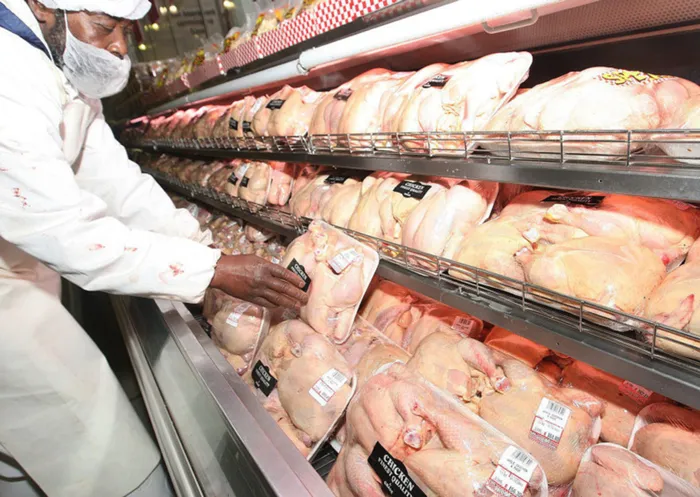Brazil to report SA to WTO on unfair trade

Import duty fees, imposed by Sars after a recent inquiry into poultry dumping by Brazil, are being disputed. Photo: Simphiwe Mbokazi. Import duty fees, imposed by Sars after a recent inquiry into poultry dumping by Brazil, are being disputed. Photo: Simphiwe Mbokazi.
Ayanda Mdluli
Brazil’s poultry association, Ubabef, would lodge a complaint with its own government and with the World Trade Organisation (WTO) against South Africa, it said yesterday.
This was to contest import duty fees to be imposed by the SA Revenue Service (Sars) to limit poultry dumping in the market.
The position was supported by Carolina von der Weid, the trade attache at the Brazilian embassy in Pretoria, who said the report by South Africa’s International Trade Administration Commission (Itac) came as a surprise and was inconsistent with the practice of fair trade by producers in Brazil.
Itac has drawn fire with its recent report that chicken products from Brazil were sold in South Africa at margins between 40 percent and 60 percent lower than they would retail at in the country of origin.
Von der Weid cited technical errors with the data collected by investigators, as well as with the methodology applied by South African authorities. This was in addition to an “unjustifiable ban” on Brazilian pork.
Marilia Martins, Ubabef’s market relations co-ordinator, said the products under investigation (whole chicken and boneless cuts) represented less than 3 percent of the total chicken consumption in South Africa.
She said Itac’s findings ignored tax differences between products sold in Brazil’s domestic market and those exported to South Africa. Since the tariffs would last until August, the industry in Brazil would lose about $70 million (R537m).
“Products sold in the domestic market have taxes of 16.5 percent and (this) was not considered by Itac when setting the normal value. None of the information provided by Ubabef or the Brazilian government was… in their analysis,” Martins said.
In addition, she said, the data provided by three out of the four Brazilian firms in the inquiry were not included and these firms were deemed uncooperative, even though they had “spent several weeks collecting more than 1.5 million transactions in the domestic market to report to Itac”.
“We believe that there is no dumping,” Martins said.
Some local importers said information supplied by the body, which reports to the Ministry of Trade and Industry, was inaccurate, and Itac could have been deliberately used by the Southern African Poultry Association to mislead.
George Southey, a manager at Merlog Foods, which was listed as non-compliant in Itac’s inquiries, disputed Itac’s figures.
Itac said between 2008 and 2010, whole frozen chicken imports from Brazil increased by 300 percent. Southey said this was not the case. He believed the figure to be about 172 percent.
Zoleka Xabindlela, a senior manager for trade remedies at Itac, said the organisation used statistics provided by Sars, the official government authority for import statistics. She refuted claims that the body served as a rubber stamp for the poultry association.
Southey said importers brought in 400 000 tons of meat and chicken last year, which served the poorer end of the market, whereas local produce was aimed at the affluent.
He said Itac’s findings would hurt the industry because imported poultry also went into processing, manufacturing and retail products. There were many people employed to work with imported meat products across the value chain, he said.
“I don’t believe that the local industry is geared to take advantage of the shortfall. This won’t create mass employment opportunities as big producers move towards mechanisation.”